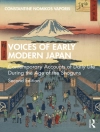Combining the perspectives of 18 international scholars from Europe and the United States with a critical discussion of the role of culture in international relations, this volume introduces recent trends in the study of Culture and International History. It systematically explores the cultural dimension of international history, mapping existing approaches and conceptual lenses for the study of cultural factors and thus hopes to sharpen the awareness for the cultural approach to international history among both American and non-American scholars.
The first part provides a methodological introduction, explores the cultural underpinnings of foreign policy, and the role of culture in international affairs by reviewing the historiography and examining the meaning of the word culture in the context of foreign relations. In the second part, contributors analyze culture as a tool of foreign policy. They demonstrate how culture was instrumentalized for diplomatic goals and purposes in different historical periods and world regions. The essays in the third part expand the state-centered view and retrace informal cultural relations among nations and peoples. This exploration of non-state cultural interaction focuses on the role of science, art, religion, and tourism. The fourth part collects the findings and arguments of part one, two, and three to define a roadmap for further scholarly inquiry. A group of’ commentators’ survey the preceding essays, place them into a larger research context, and address the question ‘Where do we go from here?’ The last and fifth part presents a selection of primary sources along with individual comments highlighting a new genre of resources scholars interested in culture and international relations can consult.
İçerik tablosu
List of Illustrations
Editors’ Preface
List of Contributors
PART I: METHODOLOGY
Introduction: On the Diversity of Knowledge and the Community of Thought: Culture and International History
Jessica C.E. Gienow-Hecht
Chapter 1. The Power of Culture in International Relations
Beate Jahn
PART II: CULTURE AND THE STATE
Chapter 2. The Great Derby Race: Strategies of Cultural Representation at Nineteenth-Century World Exhibitions
Wolfram Kaiser
Chapter 3. Manliness and “Realism”: The Use of Gendered Tropes in the Debates on the Philippine-American and Vietnam Wars
Fabian Hilfrich
Chapter 4. A Family Affair? Gender, the U.S. Information Agency, and Cold War Ideology, 1945-1960
Laura A. Belmonte
PART III: CULTURAL TRANSMISSION, NON-GOVERNMENTAL ORGANIZATIONS AND PRIVATE INDIVIDUALS
Chapter 5. France and Germany after the Great War: Businessmen, Intellectuals and Artists in Non-Governmental European Networks
Guido Müller
Chapter 6. Small Atlantic World: U.S. Philanthropy and the Expanding International Exchange of Scholars after 1945
Oliver Schmidt
Chapter 7. Atlantic Alliances: Cross-Cultural Communication and the 1960s Student Revolution
Philipp Gassert
Chapter 8. Forecasting the Future: Future Studies as International Networks of Social Analysis in the 1960s and 1970s in Western Europe and the United States
Alexander Schmidt-Gernig
PART IV: COMMENTS AND CRITICISM OR WHERE DO WE GO FROM HERE?
Chapter 9. Cultural Approaches to International Relations – A Challenge?
Volker Depkat
Chapter 10. States, International Systems, and Intercultural Transfer: A Commentary
Eckart Conze
Chapter 11. “Total Culture” and the State-Private Network: A Commentary
Scott Lucas
Chapter 12. Gender, Tropes, and Images: A Commentary
Marc Frey
Chapter 13. Internationalizing Ideologies: A Commentary
Seth Fein
PART V: ANNOTATED SOURCES
Chapter 14. The Invention of State and Diplomacy: The First Political Testament of Frederick III, Elector of Brandenburg (1698)
Volker Depkat
Chapter 15. The Rat Race for Progress: A Punch Cartoon of the Opening of the 1851 Crystal Palace Exhibition
Wolfram Kaiser
Chapter 16. Race and Imperialism: An Essay from the Chicago Broad Ax
Fabian Hilfrich
Chapter 17. A Document from the Harvard International Summer School
Scott Lucas
Chapter 18. Max Lerner’s “Germany HAS a Foreign Policy”
Thomas Reuther
Chapter 19. Excerpt from Johan Galtung’s “On the Future of the International System”
Alexander Schmidt-Gernig
Chapter 20. The “Children and War” Virtual Forum: Voices of Youth and International Relations
Marie Thorsten
Index
Yazar hakkında
Jessica C. E. Gienow-Hecht is Professor of History at the John F. Kennedy Institute for North American Studies at the Free University of Berlin.












